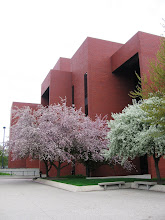Grant-Supported Projects Build Digital Resources for Learning, Teaching, and Research

The Ball State University Libraries have received several Library Services and Technology Act (LSTA) digitization grants over the past five years to develop digital resources to support the academic pursuits of Ball State students and faculty. These grants have made it possible for the Libraries to provide 24/7 access to rich research materials for the citizens of Muncie, the state of Indiana, and scholars around the world.
As a result of the current LSTA digitization grant, the University Libraries have acquired a BookDrive DIY scanner that is being used to digitize deteriorating minute books of women’s organizations and diaries of local women as part of the Middletown Women’s History Digital Collection project.
This high performance book scanning platform allows personnel to scan the fragile pages of the volumes in a safe manner that protects the historical documents and provides a high quality digital image.
The scanner is like a double copy stand with two digital cameras set at 90 degree angles so that books can be photographed in a cradle rather than laid flat like they would be with a traditional flatbed scanner. This “cradling” protects the spines of fragile books by putting less stress on them.
Labels: Ball State University Libraries, book scanner, LSTA grant




